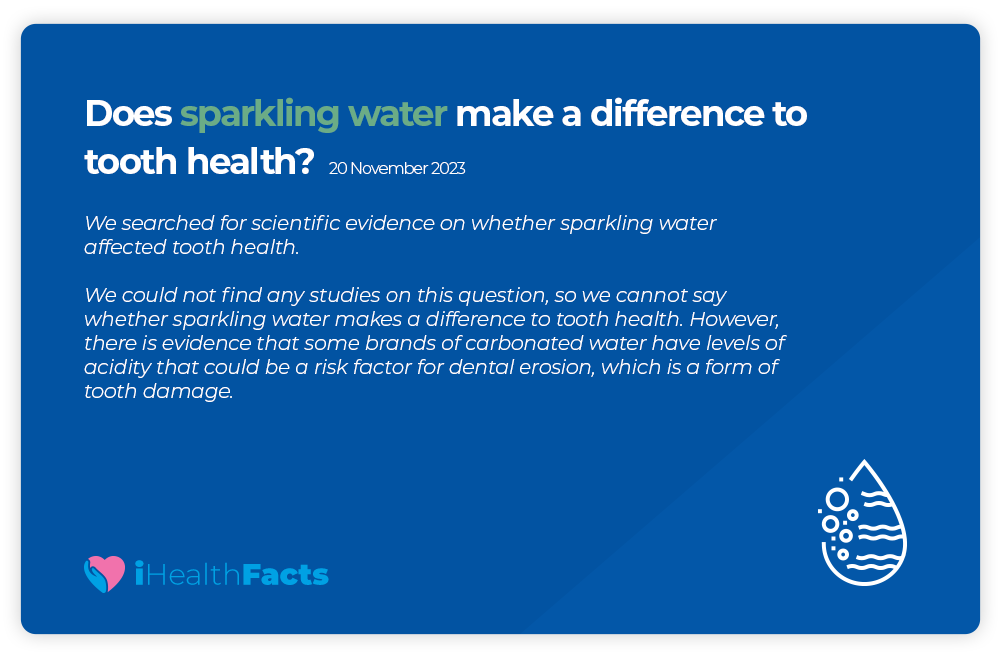The Evidence
- Sparkling water (carbonated water) contains carbon dioxide but no added sugar. Carbonation can occur naturally in water, such as water from mineral springs, or it can be added artificially by adding carbon dioxide into still water under pressure. The acid content in carbonated water depends on the amount of carbon dioxide present.
- Tooth enamel (the outermost layer of the tooth) is the hardest substance in the body. But, the acid in carbonated water and beverages can harm it.
- The harm is in the form of dental erosion where there is continuous loss of enamel, leading to sensitivity and pain.
- We looked for studies assessing the effect of sparkling water on tooth health. We did not find any studies or systematic reviews on this topic.
- However, we found a study that looked at the level of acidity by performing the pH analysis of still and carbonated bottled water. The study found that the pH of some brands of carbonated water is slightly acidic (pH below 5.2 to 5.5) , while others are above 5.5 to 6.5.
- Harm to dental enamel is expected to occur at a pH value of below 5.5. Consumption of carbonated water with a pH lower than 5.5 could potentially affect the tooth enamel.
Guidelines and recommendations
- We searched several national and international organisations including WHO, ECDC, HSE, and HSPC for related guidelines and recommendations.
- We did not find any guidelines or recommendations on the use of sparkling water.
Centres for Disease Control and Prevention (CDC) has mentioned Sparkling water as a beverage option besides water as low or no calorie beverage but there is no mention about its effect on teeth.
